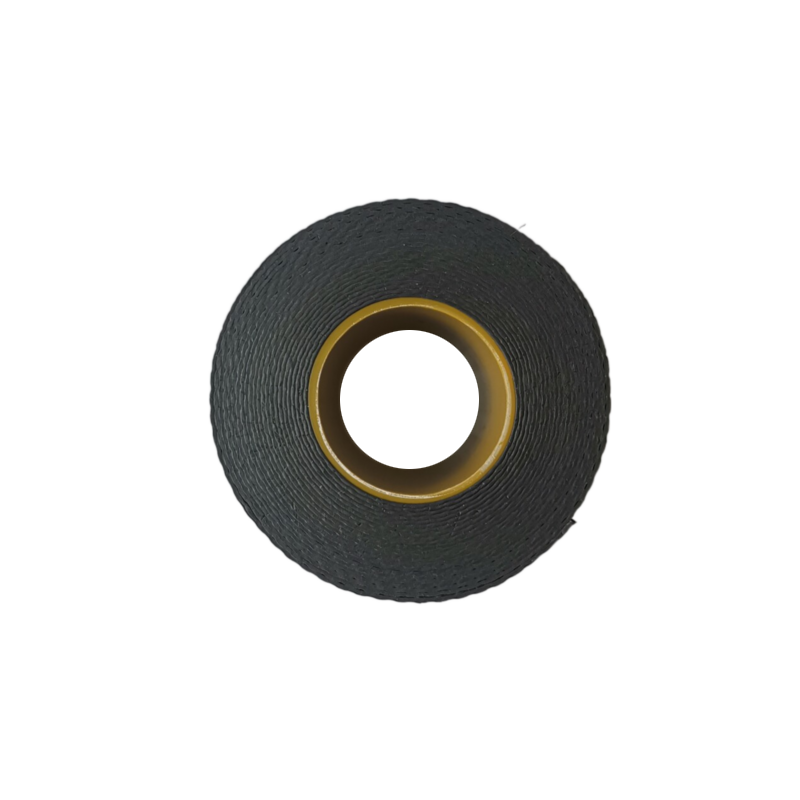The Importance of PVC Tape for Electrical Wires
In the world of electrical wiring and overall electrical safety, the choice of insulation materials and protective measures plays a critical role. Among these, PVC (Polyvinyl Chloride) tape has emerged as a favored solution for many electricians and DIY enthusiasts. This versatile tape offers numerous benefits that make it an essential component in electrical installations and repairs.
What is PVC Tape?
PVC tape is a type of vinyl tape made from polyvinyl chloride, a synthetic resin that provides a durable and flexible sealing option. Often used for insulation, it is available in various colors, which can be vital for specific applications, including wire identification. The adhesive backing of PVC tape ensures that it adheres well to various surfaces, including rubber, plastic, and metal.
Key Features and Benefits of PVC Tape
1. Electrical Insulation One of the primary reasons PVC tape is widely used is its effectiveness as an electrical insulator. PVC has excellent dielectric properties, which prevents the flow of electric current, making it safe to use in electrical applications. It protects wires from short circuits, which could lead to fires or equipment failure.
2. Durability PVC tape is designed to withstand harsh environmental conditions. It is resistant to moisture, chemicals, and UV light, which prolongs its lifespan and effectiveness. This durability is crucial for outdoor electrical projects where exposure to various elements can be expected.
3. Flexibility The flexibility of PVC tape allows it to conform to different shapes and surfaces easily. This adaptability is especially beneficial when working with wires that may be located in tight spaces or require intricate wrapping.
pvc tape for electrical wires

4. Ease of Use PVC tape is straightforward to apply, making it accessible for electricians and non-professionals alike. It can be torn by hand or cut with scissors, allowing for convenient use in various scenarios. Additionally, it adheres quickly and securely, minimizing installation time.
5. Cost-Effectiveness Compared to other insulation materials and methods, PVC tape is relatively inexpensive. This affordability makes it an attractive option for both large-scale electrical projects and small repairs.
6. Variety of Colors The availability of PVC tape in multiple colors adds a layer of functionality. Electricians can color-code wiring systems to identify different circuits or voltage levels easily. This color-coding system enhances safety and simplifies troubleshooting during maintenance or upgrades.
Applications of PVC Tape in Electrical Work
PVC tape is essential in numerous electrical applications, including
- Insulating Bared Wires When electrical wires are cut or damaged, PVC tape can be used to insulate the exposed sections, preventing accidental electric shock or short circuits. - Bundling Wires Electricians often use PVC tape to bundle together multiple wires, keeping them organized and secure while reducing the risk of tangling. - Voltage Marking As noted, color-coded PVC tape can mark wiring for different voltage levels, aiding in safety protocols and ensuring compliance with electrical standards. - Repairing Cables Damaged electrical cables can be repaired effectively with PVC tape, saving on the cost of complete replacement.
Conclusion
In summary, PVC tape is a crucial tool in the electrical field due to its insulating properties, durability, and ease of use. Whether you are a professional electrician or a DIY enthusiast, having PVC tape on hand can enhance the safety and efficiency of your electrical projects. As technology advances and electrical systems evolve, the relevance of PVC tape remains steadfast, proving its worth in safeguarding both people and equipment from electrical hazards.
-
XIANGFAN Rubber Tape-Ultimate Solutions for All Your Insulation NeedsNewsJun.24,2025
-
XIANGFAN Rubber Tape-Protection for Industrial and Residential ApplicationsNewsJun.24,2025
-
XIANGFAN Rubber Tape: Superior Safety and Sealing for Demanding EnvironmentsNewsJun.24,2025
-
XIANGFAN Rubber Tape: Reliable Solutions for Every Electrical ChallengeNewsJun.24,2025
-
XIANGFAN Electrical & Industrial Tape: Powering Reliability Across IndustriesNewsJun.24,2025
-
XIANGFAN Electrical & Industrial Tape: Excellence in Every ApplicationNewsJun.24,2025
